BitVMs that Enhance Bitcoin Privacy and How They Do This
Discover the evolution of Bitcoin credit cards, from collateralized loans to rewarding purchases. Learn about their features, types, examples, and potential integration with DeFi.
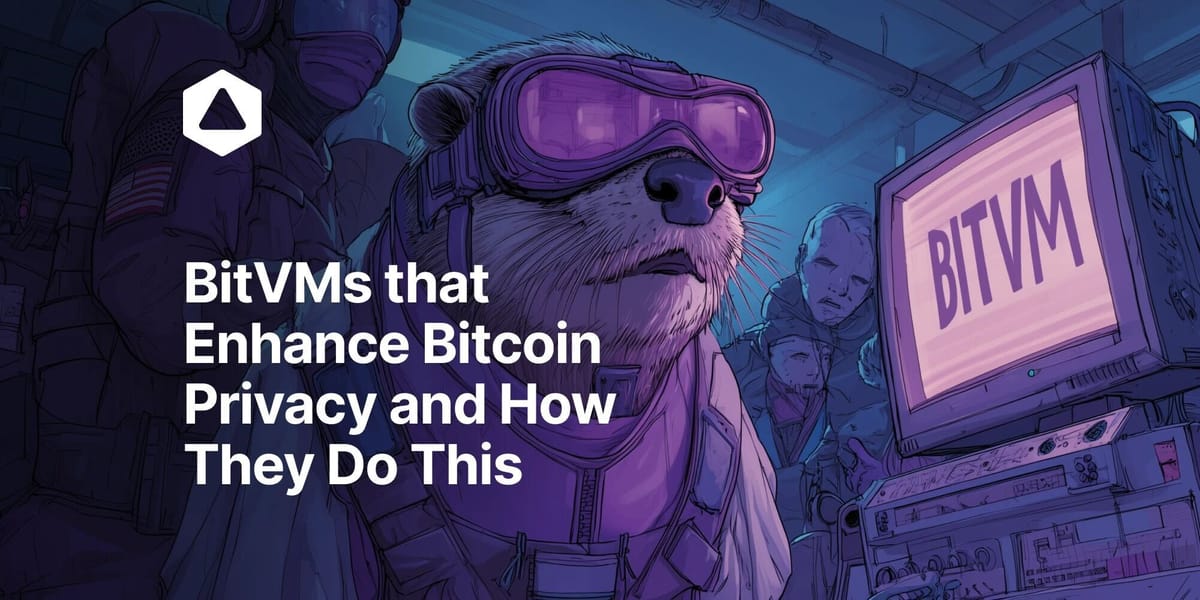
With the introduction of BitVM, Bitcoin has been transformed in how it can be used. BitVM has added a new layer of functionality to Bitcoin without compromising the blockchain's core principles. But now Bitcoin stands out more than before.
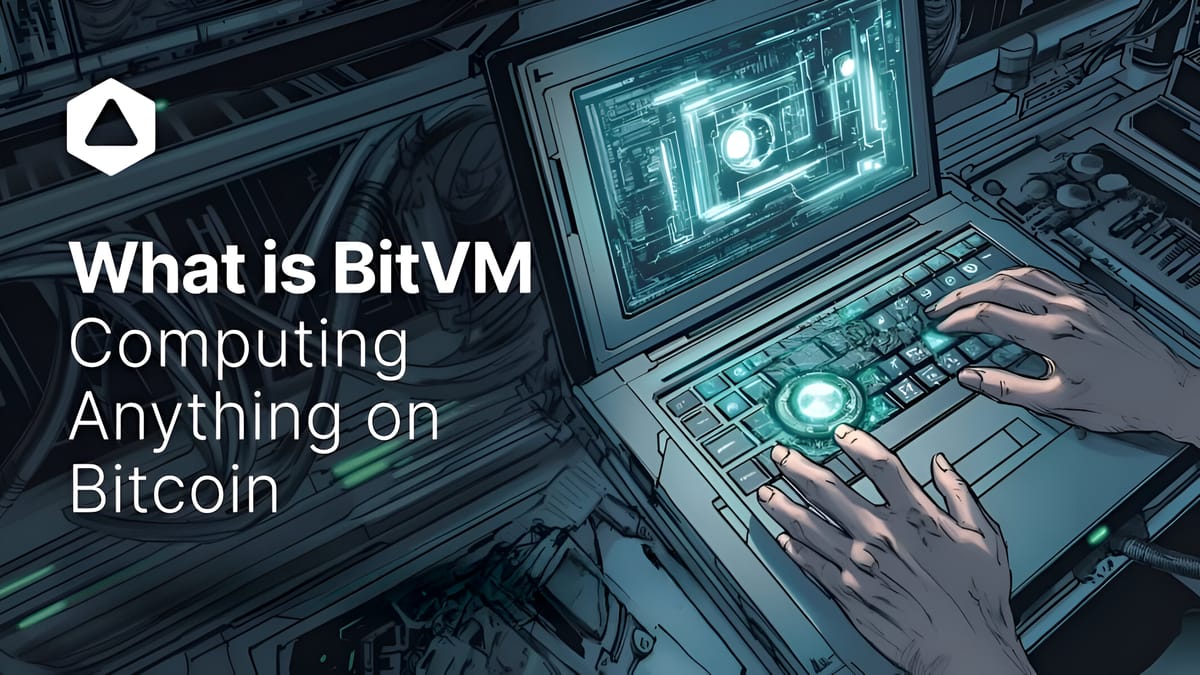
Let's take a look at how BitVM offers yet another missing piece in the Bitcoin puzzle - the need for privacy. BitVM could enhance privacy on the Bitcoin blockchain.
BitVM Recap - The Role of Bitcoin Script in BitVM
To understand BitVM, we must first grasp the fundamentals of Bitcoin Script. Bitcoin transactions use scripts, which are sets of instructions stored within each transaction output.
As Bitcoin transactions are not account-based like those in Ethereum but are instead managed through UTXOs (Unspent Transaction Outputs), each UTXO has a locking script that must be matched by an unlocking script in a subsequent transaction.
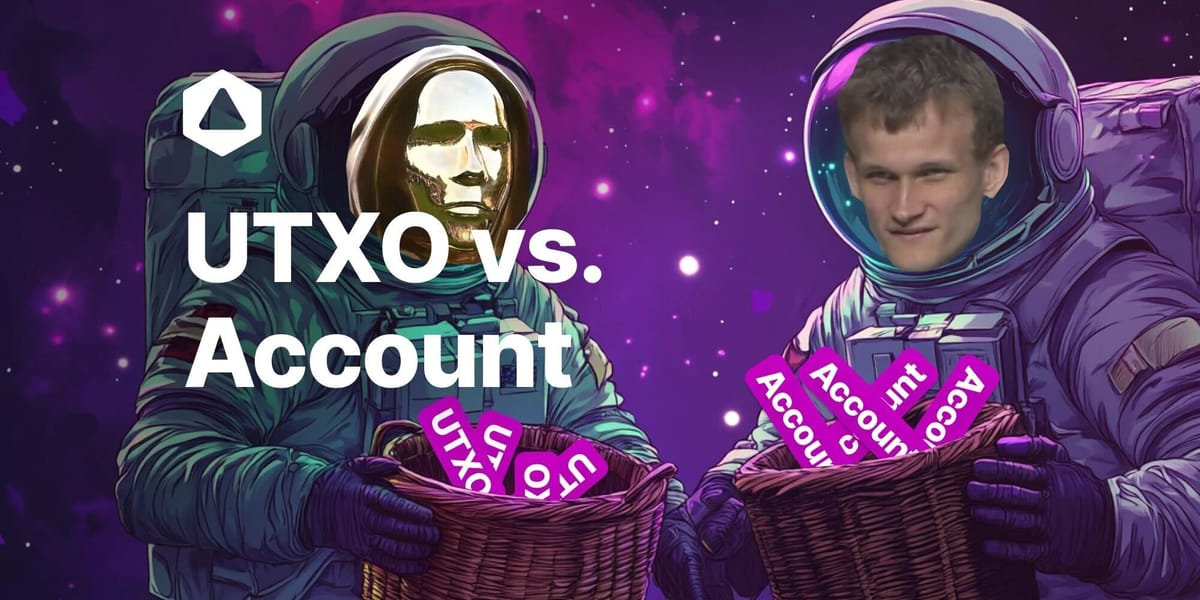
These scripts dictate how the bitcoins can be spent, and must be "unlocked" by the correct inputs in a future transaction. We can dissect the following scripts:
- Locking Script (ScriptPubKey): Placed on every transaction output, it specifies the conditions under which the output can be spent.
- Unlocking Script (ScriptSig): Used as an input to a transaction, it must satisfy the conditions set by the locking script to spend the bitcoins.
With BitVM, Bitcoin's scripting capabilities are essentially enhanced by introducing a meta-language on top of the existing Bitcoin script.

This metalanguage includes new operational codes (opcodes) and functions that allow for more complex contract structures.
BitVM Technicals
Without going too much into technical detail, BitVM leverages a concept known as MATT (Merkelize All The Things), which uses a Merkle tree to represent complex program executions while storing the actual execution data off-chain.
MATT encompasses three main components:
- Smart contract script code: The actual program code of the smart contract.
- Data required for the contract: Inputs that the contract needs to execute.
- Execution traces of the contract: This includes records of changes to memory and CPU registers during execution.
Some Benefits of Using BitVM
Importantly, BitVM does not directly impact Bitcoin's base layer. It adheres to the community's strong ethos of keeping the base layer untouched, which is critical for preserving the robustness and decentralized nature of Bitcoin.

Any enhancements or new features introduced by BitVM occur on separate layers or through sidechains. That being said BitVM introduces several significant improvements to the Bitcoin ecosystem, which are:
Enabling Optimistic and ZK Rollups on Bitcoin
One of the major benefits of BitVM is its ability to validate layer 2 computations like optimistic and ZK rollups directly on the Bitcoin mainnet. As discussed earlier, the coming of Zero Knowledge Proofs could mean great things for the privacy of Bitcoin in general.
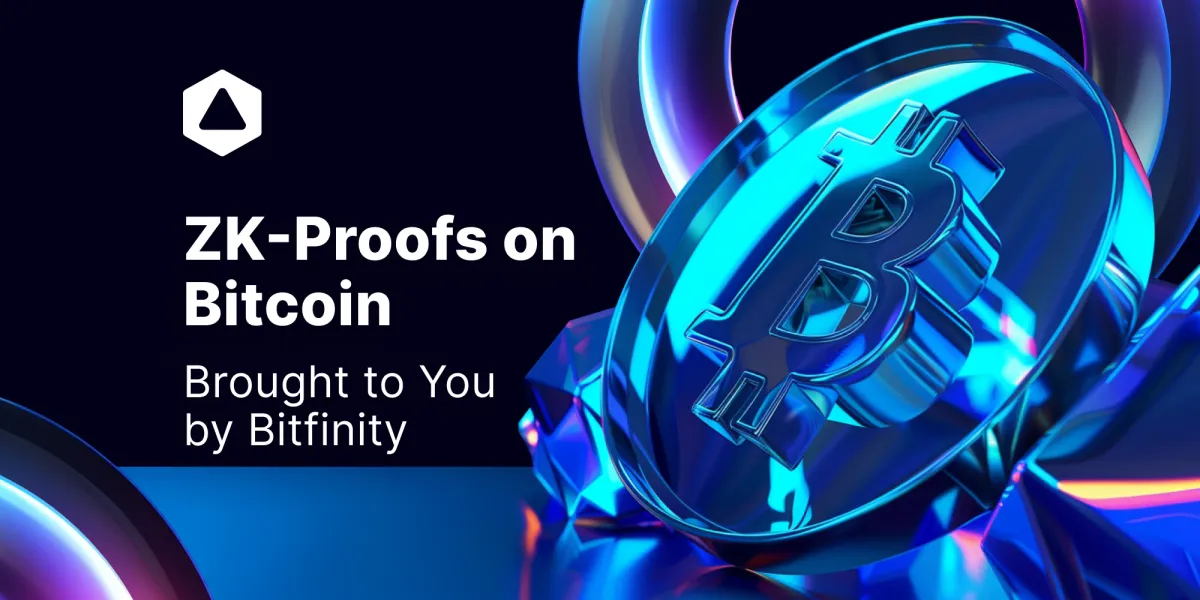
Reducing Gas Fees on Bitcoin
Because the protocol operates through two main roles: the Prover and the Verifier.
Where the ‘Prover’ is responsible for initiating claims about computations off-chain, while the ‘Verifier’ checks these claims to confirm their validity.
This way if a claim is contested, the ‘Verifier’ can use the Bitcoin blockchain to submit a fraud proof, and maintain the integrity of the network.
By processing data and computations off-chain, BitVM can significantly lower transaction fees on the Bitcoin network. On-chain verification becomes necessary only when disputes occur.
Increasing Privacy for Bitcoin Users
BitVM steps up Bitcoin's privacy game by incorporating confidential transactions and advanced cryptographic techniques.
This boost in privacy allows users to enjoy a higher degree of anonymity, which is increasingly important in today’s digital age where privacy and data security are major concerns.
But we need to remember that Bitcoin transactions are pseudonymous rather than anonymous. This means that while identities are not directly tied to transactions, individual transactions are traceable and can be linked back to individuals through their transaction history on the blockchain.
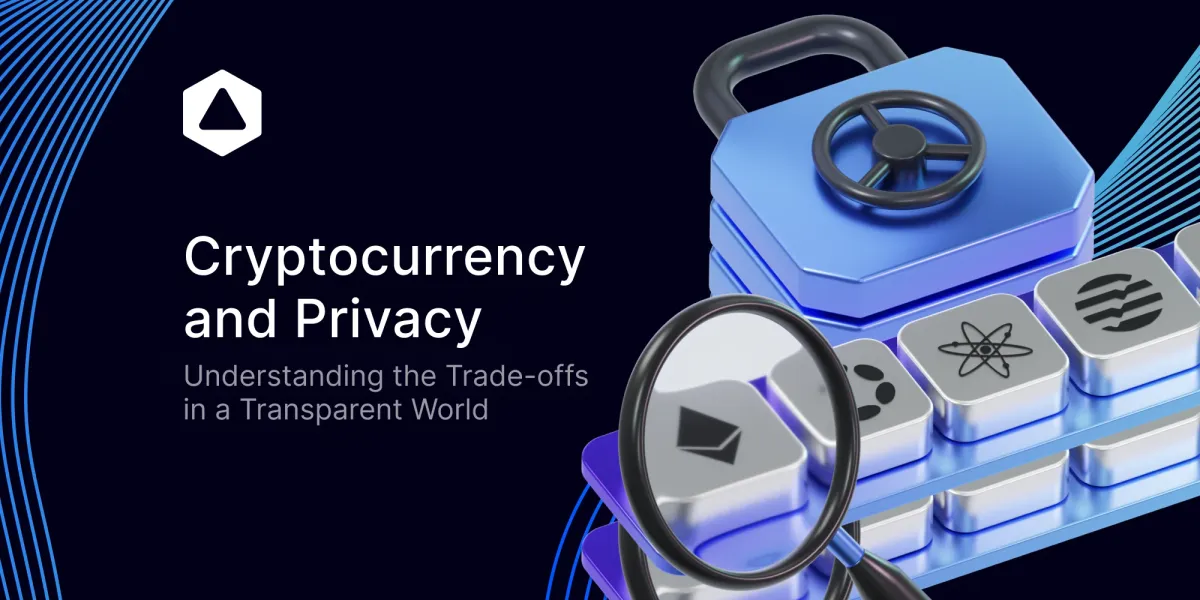
Edward Snowden, speaking remotely from Russia, emphasized that without privacy at the base layer, Bitcoin could face significant challenges. He argued that privacy is not just about secrecy but about the power to selectively reveal oneself to the world.
How Does it Enhance Privacy?
Because one of the major benefits of BitVM is its ability to validate layer 2 computations like optimistic and ZK rollups directly on the Bitcoin mainnet.
It could use zero-knowledge proofs, so that it can obscure the transaction graph and provide strong privacy guarantees. The system operates by updating sets of transaction outputs and nullifiers, allowing for the verification of transactions without double-spending, and without the need to store detailed proofs on the blockchain.
This method ensures that only minimal information, like nullifiers which prevent linkability, is visible on-chain.
Solving Bitcoin’s Scalability Issues
The security of Bitcoin as a decentralized system relies on the premise that every participant verifies all transactions. This comprehensive verification ensures that all network participants can trust that no cheating occurs. However, this method does not scale well because if every participant needs to verify every transaction, the workload becomes unsustainable as the network grows.
Zero Knowledge Proofs can address this scalability problem by compressing vast amounts of transaction data into a manageable, verifiable proof. This means that instead of verifying every single transaction, participants can simply verify the proof of transactions, which significantly reducing the amount of data each participant needs to handle.
SNARKs
SNARKs, or Succinct Non-interactive Arguments of Knowledge, are used to compress the entire history of transactions into a small, manageable proof. This proof is typically less than a megabyte and can be easily sent and verified by the recipient in a matter of seconds.
When you engage in a transaction, the process involves directly sending the transaction to the recipient without the need for a side chain or engaging a complex set of validators.
Instead, the transaction history of the specific coins being transferred is verified by the recipient, who then updates and stores this state. Regular updates to this state are then committed to the Bitcoin main chain to ensure all transactions are updated and recorded accurately.
For instance, in a transaction where Alice sends coins to Bob, Alice proves that she has the right amount of coins and that those coins haven't been spent previously, without revealing her total balance or transaction history. This type of privacy is often referred to as "privacy for free" because it inherently comes with the use of SNARKs in the transaction process.
Why Are These Innovations Important for Bitcoin's Future?
The introduction of state in Bitcoin via BitVM involves clever use of signatures to embed data within transactions, thus bypassing Bitcoin’s original stateless nature. This method not only expands Bitcoin's scripting capabilities but also paves the way for more complex and functional decentralized applications directly on the Bitcoin network.
By optimizing how new technologies work on Bitcoin, there is less strain on the network, allowing it to support both new and old functionalities effectively. But more importantly, change the way Bitcoin can up its privacy settings.
Is it that Ethereum only serves as a testnet for Bitcoin? When we see all the good stuff coming to Bitcoin in one way or another. It could be that some may view Ethereum and other similar platforms as experimental grounds for ideas that could eventually be implemented in Bitcoin.

Connect with Bitfinity Network
Bitfinity Wallet | Bitfinity Network | Twitter | Telegram | Discord | Github

*Important Disclaimer: The information provided on this website is for general informational purposes only and should not be considered financial or investment advice. While we strive for accuracy, Bitfinity makes no representations or warranties regarding the completeness, accuracy, or reliability of the content and is not responsible for any errors or omissions, or for any outcomes resulting from the use of this information. The content may include opinions and forward-looking statements that involve risks and uncertainties, and any reliance on this information is at your own risk.
External links are provided for convenience, and we recommend verifying information before taking any action. Bitfinity is not liable for any direct or indirect losses or damages arising from the use of this information.









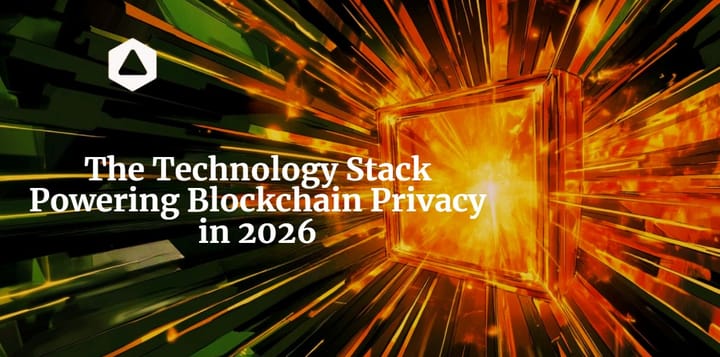
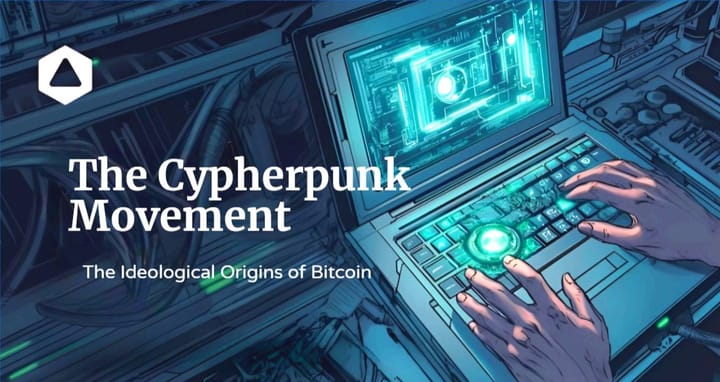
Comments ()